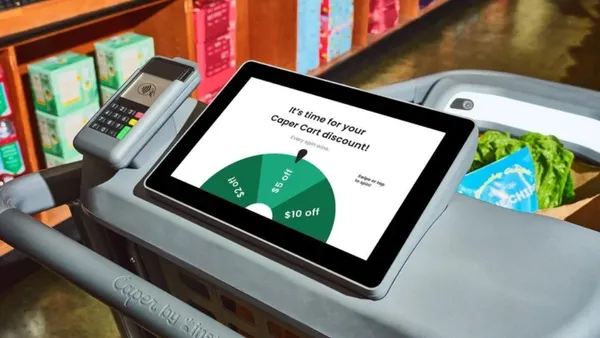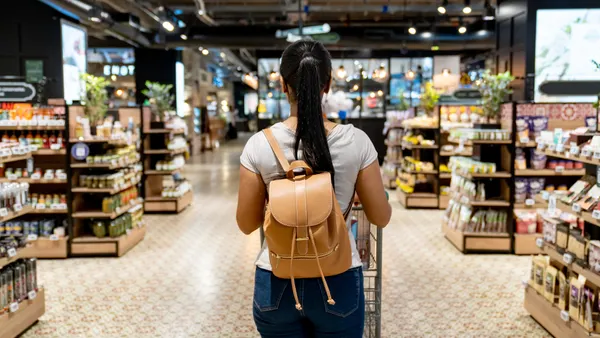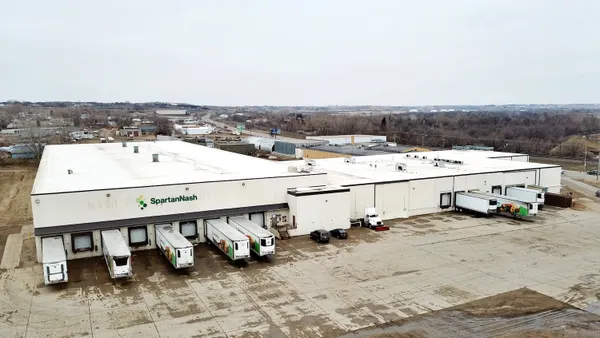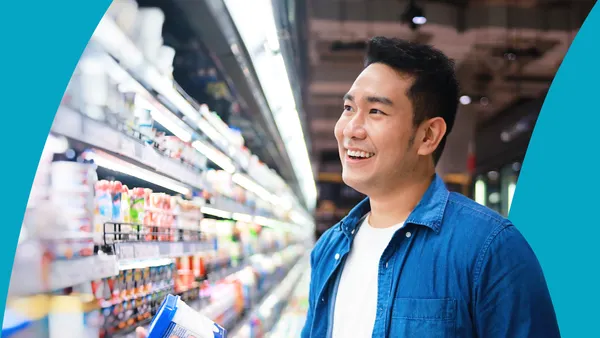Dive Brief:
- Online grocer Farmstead has announced it will make its in-house grocery delivery software available to other grocers across the U.S. to help them keep up with online grocery demand, according to a company press release.
- Farmstead said its software, called Grocery OS, offers predictive analytics, demand generation and labor management tools for grocers that can help them scale from store to dark store and warehouse operations, ultimately boosting pickup and delivery capacity. The software also allows grocers to manage their own marketing, picking and packing and delivery operations.
- According to the company, an unnamed top-three grocer is now using Grocery OS and has been able to expand delivery capacity in multiple East Coast markets.
Dive Insight:
With online shopping still humming along at record levels and set to grow to as much as a $250 billion dollar business in the next five years, Farmstead is offering a solution to help grocers own their e-commerce operations and scale across multiple fulfillment properties.
The company built its Grocery OS software from the ground up, and it can integrate into grocers’ existing operations and workforce. Farmstead said Grocery OS can add capacity for about 100 to 150 more online grocery orders a day from a supermarket location as soon as it is implemented. That figure rises to about 1,000 or more orders a day from a dark store and up to 10,000 a day from a warehouse.
The program can ultimately bring down costs for grocers, which translates into lower fees that can then drive further demand from customers, Farmstead co-founder and CEO Pradeep Elankumaran said.
“Existing third-party delivery options increase customers’ costs to levels approximately 20% higher than what the typical US household can support each week, and increase grocers’ fulfillment costs to unsustainable levels," he said in a statement.
A key advantage in utilizing the software, according to Farmstead, is the ability to stay competitive with Amazon as it continues to strengthen its grasp on grocery. The retail giant recently launched a dark Whole Foods store in Brooklyn, with experts anticipating more to follow as online grocery buying becomes the norm for many shoppers following COVID-19. Amazon has also officially opened its first Amazon Fresh grocery store to the public in Woodland Hills, California.
This is the first time Farmstead is stepping into the role of vendor for other grocers. The e-grocer has been carefully building its capabilities in recent years and has seen its own growth surge during the pandemic. The company recently doubled its delivery footprint in the San Francisco Bay Area with a new microhub in Burlingame, California, and is preparing to unveil its first app to shoppers this fall.













